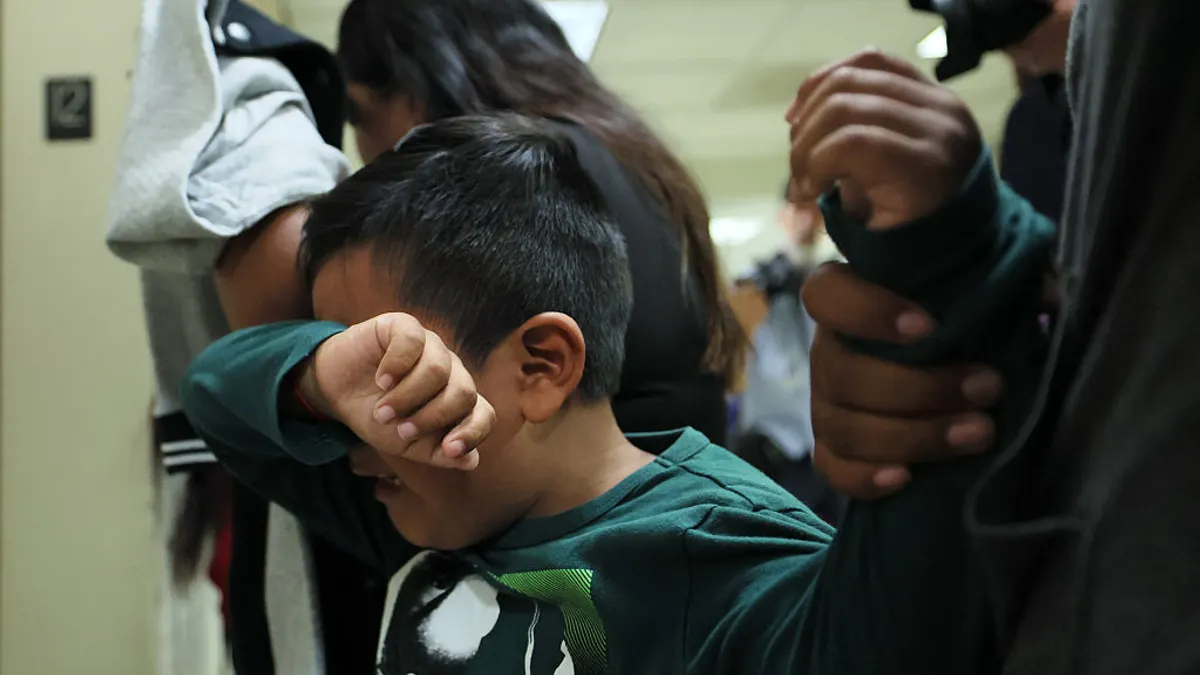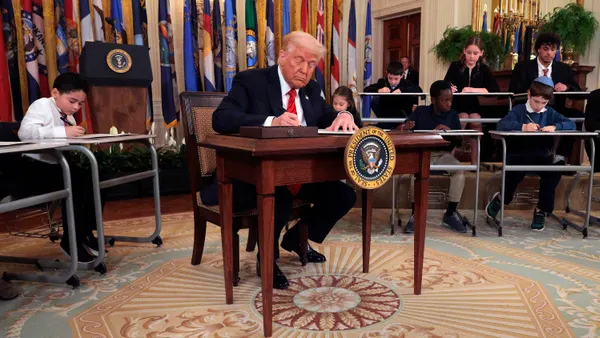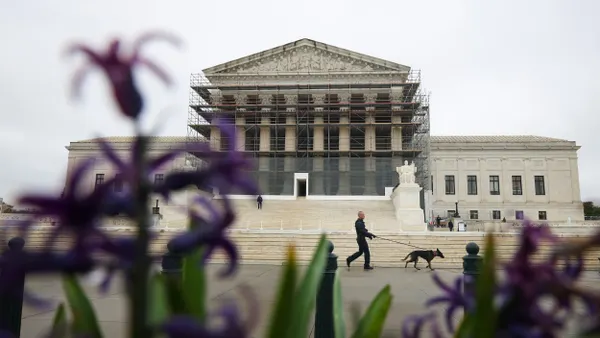The national increase in immigration enforcement is causing trauma, school avoidance and stress in the new school year, said educators, advocates and a child psychologist last week.
Speaking during a virtual press event Thursday, the leaders also shared proactive measures schools are taking to ensure students and families understand the rights of children to attend school regardless of immigration status.
"The usual first-day jitters of back to school this year have been replaced by fear," said Vanessa Cárdenas, executive director of America's Voice, a nonprofit that advocates for immigrants' rights.
Cárdenas said students are missing school because families are afraid of being detained, and schools are training staff in protocols should immigration enforcement agents come to campuses.
"In many communities across the country, children are facing the terror of wondering if their parents will be there when they come home or be apprehended at school drop-offs," she said.
Earlier this year, the Trump administration altered a U.S. Department of Homeland Security Immigration and Customs Enforcement policy to allow enforcement action on school grounds and other “sensitive areas,” which had previously been mostly off-limits from ICE raids. However, DHS has since clarified that it expects enforcement activity at schools to be “extremely rare.”
The administration said it made the change to ensure ”criminals will no longer be able to hide in America’s schools and churches to avoid arrest,” according to a Jan. 21 statement from DHS. In addition to schools and colleges, the policy also removed hospitals and churches from protected area status.
Cárdenas said there are more than 5 million children born in the U.S. who have a parent lacking permanent legal status.
Alberto Carvalho, superintendent of the Los Angeles Unified School District — who has described himself as originally coming to the U.S. as an "undocumented," low-income and non-English-speaking teenager — criticized two instances of immigration enforcement activities near LAUSD schools in the past few months.
"Our children should not be pawns of political powers that undermine their rights, dehumanize who they are, and, in the process, terrorize families," Carvalho said.
Actions schools are taking
Carvalho said that to prepare for this school year — understanding the immigration concerns some families may have — LAUSD school and district staffs have called about 14,000 families and knocked on the doors of about 2,000 homes to provide resources and explain the legal rights of all children to attend public schools.
That right to a free public education was established under the U.S. Supreme Court’s 1982 decision in Plyler v. Doe. That ruling said states cannot constitutionally deny children a free public education based on their immigration status.
LAUSD also added additional bus routes and has counselors and social workers at schools supporting families after the school day. Additionally, the district is coordinating legal aid for families through its charitable foundation, Carvalho said.
Even though these protective measures are in place, the school system has noted a decrease in enrollment. However, it's too early for formal data or to know if all the changes in enrollment or attendance are directly related to immigration enforcement, he said.
"We are absolutely certain that some of that is attributable to immigration concerns," Carvalho said.
Noel Candelaria, secretary-treasurer of the National Education Association, said the teachers union is working with local school boards to adopt safe zone policies. Those policies include reassurances for students, procedures for law enforcement, and information and support for families and staff.
"This administration is making immigrant students feel unsafe in their own communities," Candelaria said. "This is not fair. However, let me be clear, our public schools remain safe havens for students."
Likewise, the American Federation of Teachers has been hosting citizenship clinics to help immigrants prepare to become U.S. citizens and to provide free legal advice and access to experts who assist with required immigration paperwork.
Fedrick Ingram, secretary-treasurer of AFT, advised that school systems can help share citizenship resources and combat misinformation.
Allison Bassett Ratto, a child clinical psychologist in Washington, D.C, emphasized the importance of helping all children feel safe. She said that this climate of immigration fears and uncertainty is even more damaging for children who have disabilities or mental illnesses who are already facing challenges.
"Ultimately, what we know is that for America's children being raised in an environment that is defined by fear and uncertainty, a sense that no one and nowhere is safe is fundamentally damaging to children's health and well-being," Ratto said. "And it is critical that we make changes to create an atmosphere of safety, stability and growth for all children."






 Dive Awards
Dive Awards






